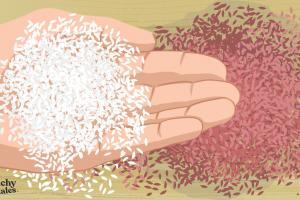Lessons in Loaf: Baking Bread 2.0
It’s about hands, heart and mind coming together. It involves the whole of you. Baking is a craft. But also a great mindfulness exercise.
All you need is flour, water, yeast and a little salt to make you feel better. When you bake you’re not spending time ruminating over your thoughts. Baking is thinking step-by-step and following the specifics of the here and now. The benefits of making bread stretch beyond great tasting food: baking can increase a feeling of wellbeing, contribute to stress relief and make you feel like you’ve done something good for the world, which perhaps increases your meaning in life and connection with other people. As well as the joy and value to be found in baking bread to share with others, just the act of committing to creating a loaf can be beneficial.
Now, with consumers increasingly seeking out non-connected pastimes, the ritualisation of baking is being launched into a cultural phenomenon. With bread’s return to favour in the wellness world, people are turning the baking process into an opportunity to slow down.
Sourdough, in particular, has reached cult status as a therapeutic antidote to constantly connected modern lifestyles. The patience and trust required to make a sourdough starter, the mixture of water and flour that, once fermented, forms the signature tangy dough, fosters a surprisingly intense emotional connection.
According to 2019 Facebook IQ’s annual topics and trends report baking bread is on the rise: the conversation about crusts and baking has seen triple growth over the past year, with 89% of those people engaging in conversation being female and 45% over the age of 55 (38% of people are between the ages of 35 and 54).
The trend happens as people’s attitude towards nutrition and wellness becomes more evolved and sophisticated- says Lucie Greene, global director at The Innovation Group at J. Walter Thompson Intelligence. – In particular, slow carb baking or slow natural fermenting, which creates bread with lower glycemic indexes (GI) is the new way of dealing with carbs.
The process of baking by hand offers also therapeutic, social and employment opportunities to the people crafting it.
In Uk, the Real Bread Campaign recently ran a short pilot project with the occupational therapy team at Bethlem Royal Hospital, in London, found that bread-making really can make people feel calmer and more relaxed.
People feel also a sense of achievement – says Chris Young, Real Bread Campaign coordinator -. Take just those three or four quite boring, basic ingredients – a mouthful of flour is nothing particularly special – and it’s alchemy, turning it into something magical.
As well as the joy and value to be found in baking bread to share with others, just the act of committing to creating a loaf can be beneficial.
For instance, the Better Health Bakery in East London, a social enterprise that’s part of mental health charity The Centre for Better Health, offers trainee bakery placements to adults recovering from mental ill health. Young says it provides a space where “people who are working through or getting over periods of mental ill health, are able to turn up and say they have achieved something at the end of the day”.
Taking part in projects like the Better Health Bakery, and Together We Rise, also gives people a chance to socialise and meet others who might be experiencing similar things, whether that’s mental ill health, loss, loneliness, or coping with older age.
The idea is to bring people together, ostensibly to learn how to cook- notes Young– and one of the simplest things you can do is bake a loaf, but at the same time, that offers a peer support group.
There are also bakeries offering employment opportunities. The Freedom Bakery, in Glasgow, put a creative twist on baking and a social conscience into their business: training and offering employment opportunities to people at risk of committing a crime. In the end, whether you sell your loaves or not, it’s the act of creating something real, tangible and delicious that’s often most empowering and important.

